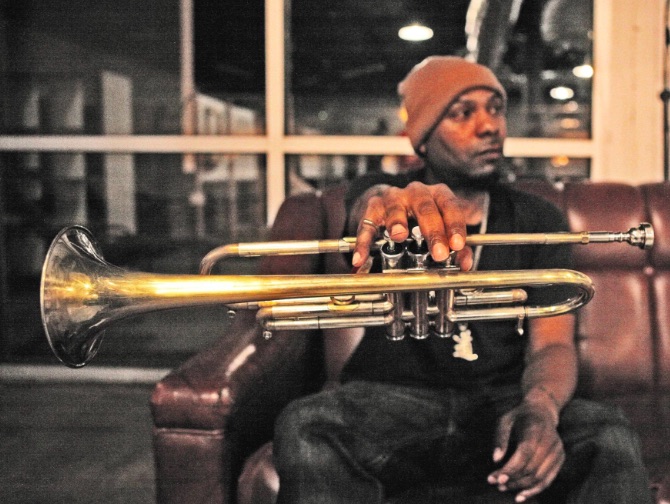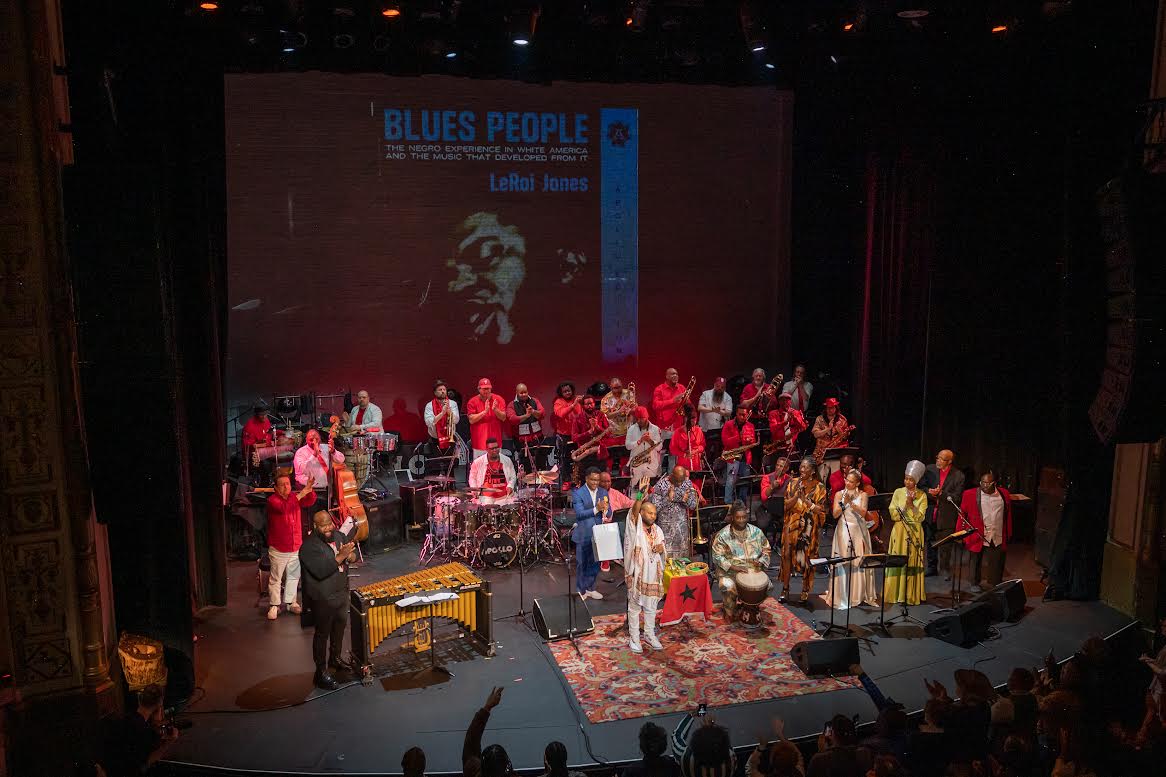[ad_1]
An article about a piece of music or a musician is a bit like a television program about a travel destination. It’s just an introduction, an observation. Many people have called Russell Gunn’s work on a trumpet masterful, brilliant, pulsating, fierce yet melodic, diverse. But you have to listen to Gunn to understand how he fulfills all those adjectives and blends so many genres into his playing.
Plus, Gunn is more than a trumpeter. He’s a composer, an arranger, a leader. On Friday, all those competencies will be on display at Symphony Hall as Gunn and his 26-piece Royal Krunk Jazz Orkestra perform his composition, The Blues And Its People, in recognition of the 60th Anniversary of Amiri Baraka’s Blues People: Negro Music in White America, which traces Black music from slavery to contemporary jazz.
The two-hour program comprises excerpts from Baraka’s book “describing the music and social circumstances of the day,” Gunn says, “each followed by a performance of the ensemble illustrating those points.”
Gunn, 51, grew up in East St. Louis, Illinois (also the home of Miles Davis) and began playing trumpet at the age of 10. He went to college at Jackson State University in Mississippi and received his first professional exposure playing in the band of R&B singer Johnnie Taylor. He went to perform with both Marsalis brothers, Branford and Wynton, and then moved to Atlanta in 1998.
His 1999 album Ethnomusicology Vol.1 and 2001 album Ethnomusicology, Vol. 2 each received Grammy nominations. He is a music artist-in-residence at Columbia College Chicago.

The Blues And Its People tribute originated with New York City’s famed Apollo Theater. Gunn was to act as music curator for a concert devoted to Baraka’s book.
“They asked me to be a curator of a musical celebration highlighting the different eras and points of interest in African American music as Amiri wrote about them, the point being that to illustrate the book and the circumstance of the people you need look no further than the music,” Gunn says. “I gratefully accepted.”
At the same time, Gunn was working on a project designed to illustrate music in different periods of African American history and culture, a project that began with the 2019 album Pyramids and continued with the 2021 EP The Sirius Mystery: Opus 4, No. 1.
“The third installment, Valley of Dry Bones, serendipitously mirrored everything that Amiri’s book talked about,” says Gunn. “It was perfect for what they wanted to do. So I sent some demos and it went from a curation to a commission.”
Gunn’s goal for The Blues And Its People is to do justice to the points of emphasis in the book. “While the book talks about different eras of music, it simultaneously deals with the social and economic aspects of the effects of those times on African Americans,” he says.
Gunn’s composition includes blues, jazz and gospel music performed by Gunn and his Royal Krunk Jazz Orkestra, plus appearances by special guests: vocalists Jazzmeia Horn, Leon Timbo and Miles Griffith; vibraphonist Warren Wolf; djembe drummer Weedie Braimah; and spoken word artist Jessica Care Moore. The program is narrated by Amber Iman. The Apollo Theater sold out the inaugural performance of The Blues and Its People on February 18. The Symphony Hall performance will also serve as the kick-off event for this year’s Atlanta Jazz Festival.

“The thing that fascinates and inspires me most about our people is not only that we possess the ability to survive the seemingly unsurvivable; but to survive, adapt, and create things of unparalleled beauty that can only be explained through our innate sensibilities,” says Gunn. “From our ability to creatively prepare food that was deemed unworthy to taking discarded and broken musical instruments and making them the architectural tools of Black American music. Although separated from the root of Africa, our sensibility could not be separated.”
The challenge in executing The Blues And Its People, Gunn notes, is to replicate how the music was played, how it sounded and felt.
“It’s hard to make music now that sounds like those times,” he says. “Even though it’s the same sound, you can’t replicate the social and economic circumstances of the day to make it feel like those people felt it when they played. We want to get it — the slave field music, the bebop — as close to the original feeling as possible.”
You might also hear other deep-rooted influences in Gunn’s music: as an arranger, Benny Golson; as a leader, Miles Davis; as an improviser, a long list that includes Davis, Clifford Brown and Lee Morgan; and as a composer, Charles Mingus and Tchaikovsky.
Tchaikovsky? One more reason Gunn’s playing has been described as cosmopolitan, a fair assessment, Gunn agreed. But jazz is essentially Black and he says it all stems from the work of Louis Armstrong.
“The entirety of what we do comes from a source and it can all be traced back to Louis Armstrong,” Gunn said. “All roads lead to Louis Armstrong and all roads come out of that. You know that if you’re honest with yourself as a musician.”
::
Mike Shaw is a jazz pianist who has performed for decades in New Orleans and Atlanta. He is the author of the novel The Musician. He is the founder of Shade Communications, a marketing company.
[ad_2]
Source link

